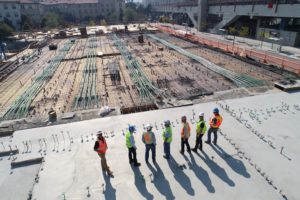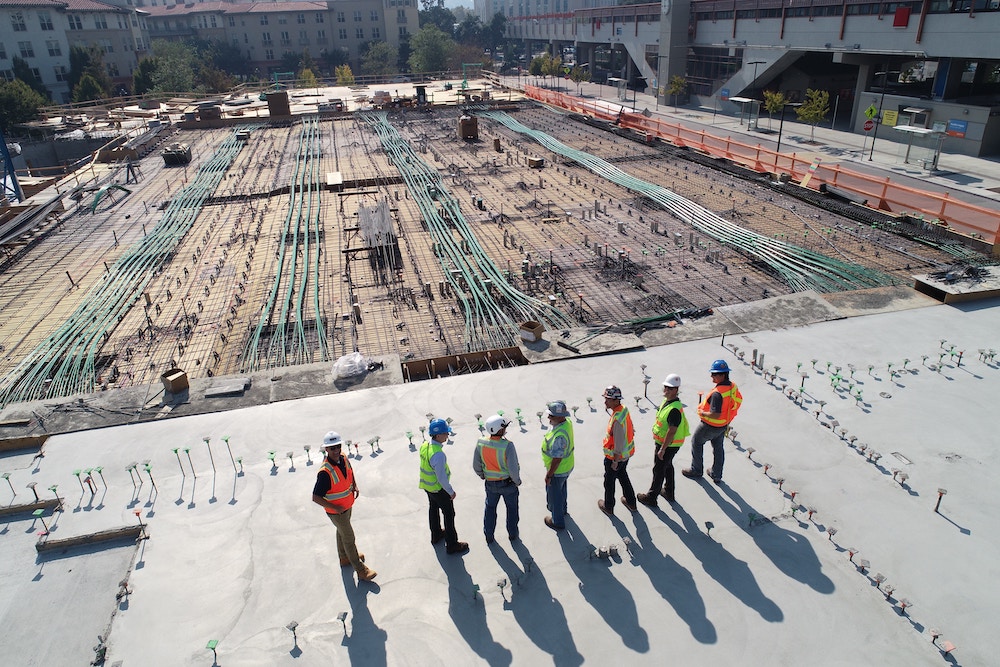
Problems come up all the time in construction. Sometimes it’s monetary, sometimes there are problems with specs – but regardless of the reason, it may seem like a good idea to stop work until the problem is cleared up. But stopping work on a project is a big decision, with substantial financial implications. Plus, depending on the contract, stopping work might not be an option.
What is the Duty to Proceed?
On almost every construction contract, public or private, contractors and subcontractors are faced with the duty to proceed with the work – regardless of whether there’s a problem going on in the background. For example, on federal jobs, work must continue even when there are pending claims. To give you an idea of what these clauses might look like, here’s the language under the Federal Acquisition Regulation (FAR):
“the contractor shall proceed diligently with the performance of this contract, pending final resolution of any request for relief, claim, appeal or action arising or relating to the contract, and comply with any decision of the Contracting Officer.”
The point of this is to ensure that work doesn’t stop while differences between the parties are resolved. Unfortunately, this can present some serious problems for contractors and subs- especially when lengthy disputes are taking place. Most duty to proceed clauses also require the owner to continue payments under the contract for the undisputed work. But the payments for disputed work could go into limbo.
This seems to balance the interests of both sides. It prevents the contractor or sub from affecting the completion of the project. Also, it prevents the owner (or contractor) from withholding unrelated funds for ransom until the dispute is resolved. In some circumstances, the right to stop work might exist. However, stopping work could lead to a breach in the contract and a termination for default. In those cases, contractors and subcontractors better hope they have enough capital to float the unpaid portions. If they can’t and work must stop, things might get ugly.
Construction Questions:
Should You Walk Off the Job You Aren’t Being Paid?
Limits to the Duty to Proceed
Even if your contract contains a duty to proceed provision, that doesn’t necessarily mean you’re stuck. There are certain limitations that, if present, may provide you with an option to stop work. Here are three common examples of limitations on the duty to proceed.
Defective Specifications (Spearin Doctrine)
Under the Spearin Doctrine, there’s an implied warranty present in government construction contracts that the project specs are free from defects, and that if the plans are followed, acceptable performance will take place. But, in order to fall under the exception of defective specifications, the specs or plans must be so defective that the purpose of the contract is guaranteed to fail, and the government is aware of it. Even if a contractor is able to obtain sufficient information to proceed, absent any clear direction from the Contracting Officer, the contractor is not obligated to proceed.
Lack of Clarification
This exception can be invoked when someone sends a Request for Information or clarification request about how to proceed on a project and receives an inadequate response (or no response at all). This could release the contractor or sub from their duty to proceed if they cannot move forward with performance without an answer. For example, in one case, a contractor requested what the desired slope of a roof should be. They received zero response, so the contractor was released from its duty to proceed with the work.
Material Breach of Contract
Material breaches could also create an exception to the duty to proceed. Meaning, if one party has breached the agreement, the other party to the contract might no longer be required to proceed with their obligations. This might be based on something like a failure to make payments without adequate justification or a serious change in the type or scope of work (like a cardinal change or an improper deductive change order), or some other breach of the contract. With cardinal changes or deductive change orders – there may be little or no justification to require contractors to continue work on the contract if the contract ends up being completely different.
Bottom Line
Often, the duty to proceed will persist even if there are serious problems going on in the background. It’s a bad idea to assume that you aren’t required to continue with your work, but in some cases, there might not be a duty to proceed. As always, it’s a good idea to try and talk out any issues before they snowball out of control. If things get a little more contentious, it might be time to look and see what options are available under the contract.
Related Resources
- Breach of Contract Explained in Full
- What Happens if Performance Becomes Impossible?
- Construction Contracts – Beware of Certain Clauses


